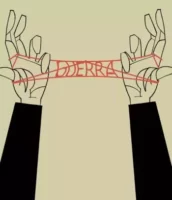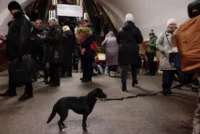Sarajevo bajo cero: manual de instrucciones
Ahora que estamos viendo, día a día y en directo, la guerra bajo cero que padecen tantos ucranios, aquellos que conocimos el cerco de Sarajevo, de Mostar, de Tuzla durante su guerra, podemos recordar algunas cosas. Un primer elemento en común: los civiles de esas ciudades, víctimas del agresor serbio. Los civiles de toda edad y condición tienden a parecerse en todas las guerras. Pero una primera diferencia es, de momento, la duración de la agresión. En Ucrania llevan nueve meses bajo las bombas, en Sarajevo el cerco duró más de tres años y medio, de marzo de 1992 a octubre de 1995.… Seguir leyendo »

















